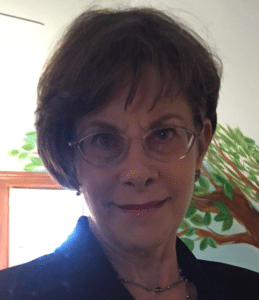As parshat Yitro opens, Moses, an inexperienced and inarticulate leader of the Hebrew people, has, at last, negotiated their release from bondage to Pharaoh and led them into the wilderness. The wilderness is not a good place to be directionless, and the people are indeed restless. Where should they set up their camp? Who gets the flat places and who must clear away rocks? When do they eat? What do they eat?
One after another, the questions and complaints fly at Moses. He tries to respond to each, but he is overwhelmed and exhausted.
Out of the dusty distance comes Yitro, Moses’s father-in-law, bringing Zipporah, Moses’s wife, and their young children who’d been living with him during the exodus.
Yitro is a Midianite priest, not a Hebrew. In other words, he’s not a member of the tribe. Nevertheless, Moses welcomes his father-in-law, whose advice, it turns out, is not only wise, but will change forever the picture for Israel.
Yitro tells his son-in-law, “You cannot handle this whole tribe by yourself. You have to delegate. You have to ask people with experience and standing to take on some of the load. You have to let people lead and grow in experience themselves. You have to learn to be a manager.”
Moses does.
Thanks to Yitro, the wisdom of the elders, of tribal leaders, is harnessed. A new system of management takes the Hebrews through the wilderness. True, it takes 40 years, but they do arrive in the promised land. This new system works. Shared wisdom is so much wider and deeper than the knowledge of one person alone, even a chosen person.
Ben Zoma, a first century scholar, is often quoted for this teaching: Who is wise? The one who learns from every person, as it is said: “From all those who taught me I gained understanding” (Psalms 119:99).
All those, not merely the ones you ask for help, not just the members of your tribe. Wisdom can arrive from any direction. Every person holds something of insight. Every human interaction is an opportunity to learn.
On Jan. 2, a mentor died. Suzy Post was known and treasured by so many of us for her fierce commitment to social justice and her tireless pursuit of righteousness. Her death hit me like a punch in the solar plexus. I sat, unable to work or to enjoy, tears dripping into my cup of tea. I picked up my fountain pen and sketchbook to doodle, and what came out was a litany, some of which I want to share:
“I’m crying …
Because she loved who I could be as well as who I am.
Because she was fierce for justice.
Because she sought out and nurtured women and opened windows into power.
Because she took on, faced down, and changed racists.
Because she never gave up.
Because she hated hatred.
Because she looked for the humanity in humans.
Because she painted her house pink and purple and filled it with art.
Because she brought people together in her sitting room or back deck so we’d know we are not alone, we can find allies, we can and must work together.
Because she sat on the floor with Ruth Bader Ginsburg, working together.”
Where is wisdom? It is everywhere, if we’re open to it. We might not always hear what we like. We might sometimes learn what not to do. We might hear something that changes everything.
Moses learned from a Midianite priest, and that changed everything.
(Rabbi Laura Metzger is an independent rabbi living in Louisville.)




